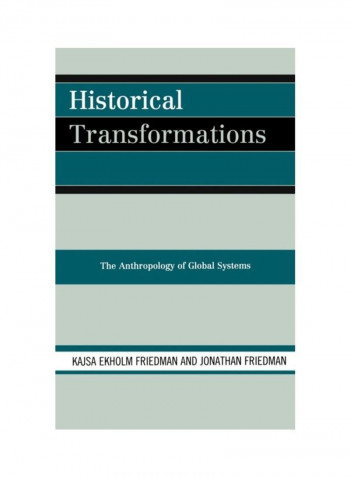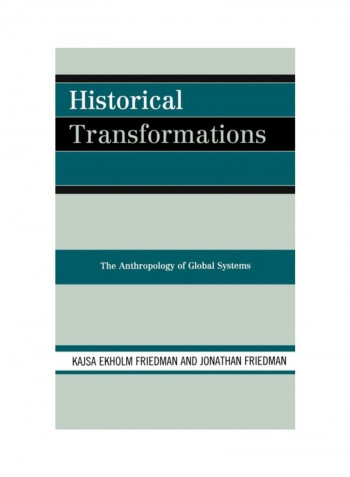Historical Transformations: The Anthropology Of Global Systems Hardcover
Recommend
Sort by
Rating
Date
Specifications
Grade
New
Author 1
Kajsa Ekholm Friedman
Book Description
Historical Transformations represents the work of two distinguished anthropologists over three decades on the history and importance of global thinking in the social sciences. The authors consider numerous examples for which local phenomena can only be understood within the contexts of global systems. Their multidisciplinary work touches on many aspects of social and individual life as well as long-term historical processes.
ISBN-13
9780759111103
Language
English
Publisher
AltaMira Press,U.S.
Publication Date
28 Aug 2008
Number of Pages
330
About the Author
Kajsa Ekholm Friedman is professor in the Department of Social Anthropology at Lund University, Sweden. Jonathan Friedman is directeur d'etudes at the Ecole des Hautes Etudes en Sciences Sociales, in Paris, and professor of social anthropology at Lund University.
Author 2
Jonathan Friedman
Editorial Review
In these essays, the authors critique materialist, evolutionary, elitist, and development theoretical approaches in archaeology and anthropology. It is most relevant for professional readers interested in the history of systems theory and Marxist discussions of capital and social reproduction. * CHOICE, August 2009 * Historical Transformations includes appraisals of Marxist, cultural materialist, and neo-evolutionary approaches to understanding modern and postmodern realms. It offers especially trenchant criticisms of most globalization theories, suggesting that they are largely biased ruminations of global elites. Yet out of the ruins of such questionable theory, Ekholm Friedman and Friedman formulate their own global systems theory. Drawing on only a few concepts-of which logic, social reproduction, and transformational analysis are most prominent-they craft an understanding of the world in which Bronze Age empires, Oceanic Big Man politics, Congolese kinship and witchcraft culture, and the postmodern West are explained by transformational analysis. In the end, the authors suggest that the postmodern world in which we live is one at the 'end of empire' when history has taken on a 'Kafkaesque quality.' -- Stephen Reyna, University of Manchester




